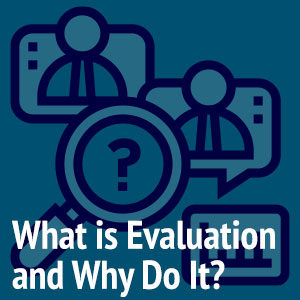
We’ve previously written about the rise of artificial intelligence and the current and anticipated effects of AI upon employment. (See links to previous blog posts, below) Two recent articles treat the effects of AI on the assessment of students and the hiring of employees.
In her recent article for NPR, “More States Opting To ‘Robo-Grade’ Student Essays By Computer” Tovia Smith discusses how so-called “robo-graders” (i.e., computer algorithms) are increasingly being used to grade students’ essays on state standardized tests. Smith reports that Utah and Ohio currently use computers to read and grade students’ essays and that soon, Massachusetts will follow suit. Peter Foltz, a research professor at the University of Colorado, Boulder observes, “We have artificial intelligence techniques which can judge anywhere from 50 to 100 features…We’ve done a number of studies to show that the (essay) scoring can be highly accurate.” Smith also notes that Utah, which once had humans review students’ essays after they had been graded by a machine, now relies on the machines almost exclusively. Cyndee Carter, assessment development coordinator for the Utah State Board of Education reports “…the state began very cautiously, at first making sure every machine-graded essay was also read by a real person. But…the computer scoring has proven “spot-on” and Utah now lets machines be the sole judge of the vast majority of essays.”
Needless to say, despite support for “robo-graders”, there are critics of automated essay assessments. Smith details how one critic, Les Perelman at MIT, has created an essay-generating program, the BABEL generator, that creates nonsense essays designed to trick the algorithmic “robo-graders” for the Graduate Record Exam (GRE). When Perelman submits a nonsense essay to the GRE computer, the algorithm gives the essay a near perfect score. Perelman observes, “”It makes absolutely no sense,” shaking his head. “There is no meaning. It’s not real writing. It’s so scary that it works….Machines are very brilliant for certain things and very stupid on other things. This is a case where the machines are very, very stupid.”
Critics of “robo-graders” are also worried that students might learn how to game the system, that is, give the algorithms exactly what they are looking for, and thereby receive undeservedly high scores. Cyndee Carter, the assessment development coordinator for the Utah State Board of Education, describes instances of students gaming the state test: “…Students have figured out that they could do well writing one really good paragraph and just copying that four times to make a five-paragraph essay that scores well. Others have pulled one over on the computer by padding their essays with long quotes from the text they’re supposed to analyze, or from the question they’re supposed to answer.”
Despite these shortcomings, computer designers are learning and further perfecting computer algorithms. It’s anticipated that more states will soon use refined algorithms to read and grade student essays.
Grading student essays is not the end of computer assessment. Once you’ve left school and start looking for a job, you may find that your resume is read not by an employer eager to hire a new employee, but by an algorithm whose job it is to screen for appropriate job applicants. In the brief article, “How Algorithms May Decide Your Career: Getting a job means getting past the computer,” The Economist reports that most large firms now use computer programs, or algorithms, for screening candidates seeking junior jobs. Applicant Tracking Systems (ATS) can reject up to 75% of candidates, so it becomes increasingly imperative for applicants to send resumes filled with key words that will peak screening computers’ interests.
Once your resume passes the initial screening, some companies use computer driven visual interviews to further screen and select candidates. “Many companies, including Vodafone and Intel, use a video-interview service called HireVue. Candidates are quizzed while an artificial-intelligence (AI) program analyses their facial expressions (maintaining eye contact with the camera is advisable) and language patterns (sounding confident is the trick). People who wave their arms about or slouch in their seat are likely to fail. Only if they pass that test will the applicants meet some humans.”
Although one might think that computer-driven screening systems might avoid some of the biases of traditional recruitment processes, it seems that AI isn’t bias free, and that algorithms may favor applicants who have the time and monetary resources to continually retool their resumes so that these present the code words that employers are looking for. (This is similar to gaming the system, described above.) “There may also be an ‘arms race’ as candidates learn how to adjust their CVs to pass the initial AI test, and algorithms adapt to screen out more candidates.”
Resources:
“More States Opting To ‘Robo-Grade’ Student Essays By Computer,” Tovia Smith, NPR, June 30, 2018
“How Algorithms May Decide Your Career: Getting a job means getting past the computer” The Economist, June 21, 2018
Will You Become a Member of the Useless Class?
Humans Need Not Apply: What Happens When There’s No More Work?
Will President Trump’s Wall Keep Out the Robots?
“Welcoming our New Robotic Overlords,” Sheelah Kolhatkar, The New Yorker, October 23 2017
“AI, Robotics, and the Future of Jobs,” Pew Research Center
“Artificial intelligence and employment,” Global Business Outlook



